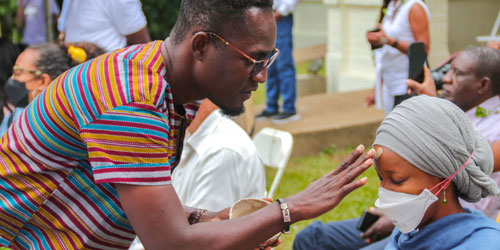Tara Magner, Director, Chicago Commitment, reflects on feedback, learnings, and challenges as we work to support racial equity in our Chicago grantmaking.
As we pursue racial equity through our work on the Chicago Commitment team, a critical part of our learning and growth is to seek advice and counsel from others. We ask grant recipients and peers in other philanthropic institutions to share feedback on what they see that is both positive and negative about our work. We also ask colleagues to reflect on their own journeys and share the knowledge and wisdom they have gained.
In this spirit, we recently asked over a dozen representatives of foundations to speak confidentially with our evaluation and learning partner, Education Development Center (EDC). The results of those interviews, compiled in a report, will inform the next steps we take.
Across all the interviews, three ideas emerged as essential to philanthropies achieving their racial equity goals. First, we must garner the commitment of our boards of directors and get their buy-in to our racial equity work. Second, we must build strong and genuine relationships between philanthropic staff and grant seekers to shift power between these groups. Third, we must engage in partnership with other philanthropies, collaborative initiatives, and learning communities. Just as we heard these points raised in the interviews, they are front of mind for our team.
In addition, on the Chicago Commitment team, we know that for us to learn and to be better partners on our journey toward true racial equity, we must be vulnerable, open, and candid about our own struggles and experiences. This is key to building and sharing knowledge to inform decision-making and fostering equity. So we are beginning to share what we have learned. The examples below are far from exhaustive but rise to the forefront of many of our current discussions.
What We are Doing Now on the Chicago Commitment Team
It was encouraging to learn that many in philanthropy are pursuing similar approaches to our own in advancing racial equity. For some, that means directing more funding to Black-, Brown-, Asian-, and Indigenous-led organizations. For others, it means placing greater decision-making power in the hands of individuals and organizations outside our foundations by adopting participatory grantmaking models. And for many, it means revamping our internal operations to ensure we are pursuing equity in recruitment, hiring, and retention of staff; creating foundation-wide racial equity committees; and bringing greater diversity to our board and foundation leadership.
What We are Grappling With as We Pursue Our Racial Equity Goals
Through the interviews, we learned that many of us in philanthropy are grappling with the same questions and challenges, such as:
- How can we collect better demographic data on our own institutions and grant recipients?
- What language should we use to honor and, to the best of our ability, accurately reflect many identities?
- How can we structure grants and grant requirements so they respond to grantee needs and minimize the burden placed upon them? Can we accomplish these goals while also furthering specific programming and reporting objectives?
- How can we communicate or demonstrate continual progress when the change we seek, especially in many disinvested communities, will require long-term commitment?
Where We Are Still Wrestling With Hard Questions
We acknowledge that we are in the early stages of our racial equity journey. As we continue to learn, grow, and collect feedback, we recognize that we can and should do more. Based on feedback from colleagues in philanthropy, grant seekers, and grant recipients, one issue that is top of mind is how to tackle the root causes of racial inequity. We are wrestling with how to find the right balance between our current approaches that advance community-led initiatives, and efforts that also require significant support, such as policy reform. Through grants and other activities, how can we do more to address the causes of racial inequity and not only the symptoms? How can we help to dismantle the systems and structures that entrench racism?
Sharing Reflections, Feedback, and Learning
A final message we heard through the interviews was that our philanthropic colleagues are interested in sharing their reflections with one another and with their grant recipients. Our shared commitment to progress on racial equity can only be advanced by intentionally learning together and building collective impact. We are planning to hold conversations with a wide array of colleagues this fall, including friends, peers, critics, and skeptics, to seek further input on our grantmaking strategy and related activities. If you would like to share your thoughts, please reach out to us. In the meantime, we are deeply grateful for the continued partnership and advice of colleagues as we work toward our shared goal of racial equity.




